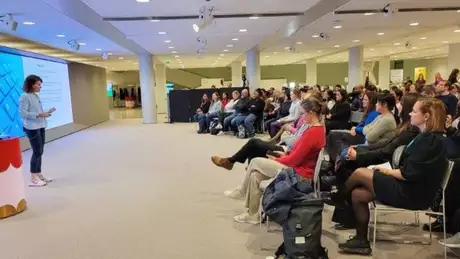The impact of social media marketing and platform-based economies on the Finnish food industry was the focus of my research paper. This issue appealed to me because I’ve worked in the restaurant industry in Finland on several occasions. In the last several years, I’ve noticed a substantial increase in restaurants’ use of social media marketing and platform-based meal delivery services. The vast majority of internet customers utilize social media daily in some form or another. Social media marketing is assisting them in expanding their business. Through sharing-platform economies, the restaurant industry in the twenty-first century is rapidly changing. This study sought to determine the extent to which restaurant owners use social media marketing to expand their local businesses, as well as the impact of food delivery platforms such as Foodora and Wolt on the restaurant industry.
With the theme of the digital economy, I attempted to provide a brief history of the digital economy in this master’s thesis. Businesses are rapidly embracing new channels, utilities, and apps as a result of the rise of social media to improve their operational capabilities. The number of social media users has skyrocketed since its rise in 2004 with MySpace.com. This internet phenomenon has emerged the industry divisions in digital marketing where businesses rely on several powerful resources to promote their business operations. Because everyone on social media has their voice, it allows the food sector to dive deep into sharing stunning visual content such as images, videos, text, and other interactive content to reach out to their potential clients. Industries are now focusing on achievable social media marketing strategies to increase their brand recognition and enhanced search engine rankings and increase their revenue.
I also focused on the current trend of the gig or platform economy. Currently, most urban areas in Finland rely heavily on services provided by Foodora and Wolt. Since 2014, these services have been quickly growing throughout Finland. These courier businesses have expanded their operations beyond meal delivery to include groceries and logistical deliveries. The freelance couriers are playing major roles in functioning these services as it has provided thousands and thousands of jobs to the industry.
To find out the answer to the research objective presented in the introduction chapter of this research, I conducted structured interviews with eight different restaurants from the Helsinki region which were randomly selected. All the interview candidates were restaurant business owners. I asked all of them the same six sets of questions. Due to the ongoing Coronavirus pandemic, the interviews are conducted by phone. Throughout the interviews, it became clear that Facebook is dominantly the key platform of social media advertising followed by Instagram. The interview also revealed that most restaurants spend some money for the paid sponsorship for their advertising content throughout Facebook. Some of the interviewees stated that they use social media daily to promote their business while others said few times depending on the situation. It was also clear that all of the restaurants use food delivery services provided by Foodora and Wolt. Wolt seemed to be the preferred one for most of the owners due to their engaging customer services. The interview also found that advertisement is the key reason for using delivery platforms for restaurants. These delivery platforms also helped them for their business growth and made them more competitive in the restaurant industry. The interview found out that most of the restaurant owners were not satisfied with the use of these applications as they are obliged to pay a high volume of commission. According to the owners, the situation due to the pandemic has forced them in some form to use these platforms to be visible to the vast majority of online consumers.
The findings of this master’s thesis are valuable for the restaurant business in recognizing the relevance of social media marketing in this digital era. Apps like Foodora and Wolt have been crucial in assisting struggling companies during the corona pandemic. Businesses must recognize that these platforms have become a vital element of their day-to-day operations. The outcome also stresses that advertisements sent through these apps are more successful and require less work from owners. In the future, I hope that the restaurant business can negotiate the appropriate amount of commission with delivery companies so that all parties are satisfied at the end of the day. This research is significant for the master’s degree in media management since it relates to social media and the platform-based economy. The authors’ analysis of prior research and understanding of social media marketing and the digital economy aids future research in the media field in focusing on the subject from a different perspective.


